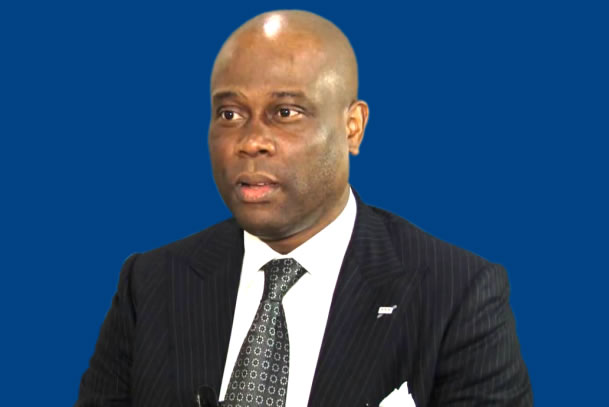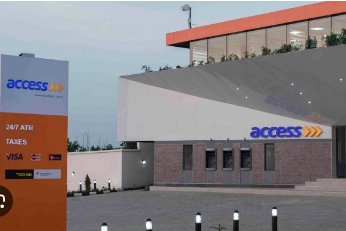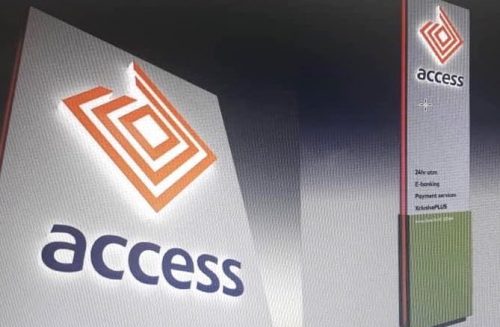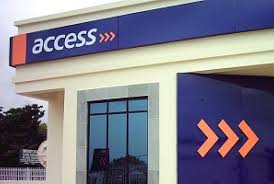Business
Access Bank: Expanding the frontiers of banking services
Published
9 years agoon
By
Olu Emmanuel
In the past 26 years, Access Bank Plc has metamorphosed from an obscured Nigerian bank into a world-class African financial institution with an asset base in excess of US$12.2 billion. ODUNEWU SEGUN writes.
WITH a humble beginning in 1988, and courage and determination to challenge the status quo, Access Bank Plc has grown to the level of a phenomenon in the Nigerian banking sector, to the extent of swallowing a much bigger bank, Intercontinental Bank, in 2012 to sit comfortably among the top five biggest banks in Nigeria.
Commenting on the bank’s impressive streak at the EMEA Finance African Banking Awards 2016 where Access Bank emerged biggest winner, EMEA Finance CEO Christopher More, described the bank as a powerhouse, and one of the premier financial institutions in Nigeria that has consistently generated steep increases in revenues and profit growth over the past several years despite strong macroeconomic headwinds.
In the past 26 years, Access Bank Plc has transformed from an obscured Nigerian Bank into a world class African financial institution with an asset base in excess of US$12.2 billion, a profit after tax of $298million as at December 2015 and shareholders’ equity valued at approximately US$1.86 billion.
The Bank has over 830,000 shareholders including several Nigerian and international institutionalinvestors and has enjoyed what is arguably Africa’s most successful banking growth trajectory in the last ten years ranking amongst Africa’s top 20 banks by total assets and capital in 2011.
The phenomenal growth of the bank started in 2002 when the Board of Directors appointed Aigboje Aig-Imoukhuede as Managing Director/Chief Executive Officer and Herbert Wigwe as Deputy Managing Director with a mandate to reposition the bank as one of Nigeria’s leading financial institutions.
The new management team subsequently created a transformational agenda for Access Bank which represented a departure from all that characterized the Bank in the past and became the road map for the conversion of the bank into a world class financial institution.
In the first year of the new management administration, its balance sheet grew by 100 per cent, posting an impressive N1 billion profit before tax. The profit before tax figure was more than the cumulative profit made by the bank in the previous 12 years. This also marked the beginning of what would be a six year record triple-digit growth trend. Similarly, earnings per share had rebounded to 21 kobo from a negative 2 kobo position, leading to a declaration of a 5 kobo dividend to shareholders for the first time in three years.
In 2007, it embarked on a capital raising exercise that comprised of an Over-The-Counter resulted in an over 300 per cent subscription rate success GDR placement of US$250 million that was oversubscribed by 700%. The Bank’s shareholders’ fund today stands at over N240 billion with an expanded shareholder base of over 1,000,000 domestic and foreign investors.
Within the period, it recorded the most actively traded stock on Nigerian Stock Exchange, recording a N1 billion profit after profit. It also successfully raised N14.5 billion through a public offer, recording 133% over subscription. Similarly it acquired Capital Bank and Marina Bank via merger by absorption.
In 2013, Herbert Wigwe the Current CEO of the bank was appointed by the Board of Directors of Access Bank to lead the bank to greater height as Group Managing Director upon the retirement of Aigboje Aig-Imoukhuede, his co-pilot on the transformation journey of Access Bank.
Since assuming office on January 1, 2014, Herbert Wigwe’s visionary leadership has cemented the exemplary strides of the former Group Managing Director and Chief Executive Officer, AigbojeAig-Imoukhuede.
Access Bank, which has consistently seek for ways to expand its service platform across the African continent, currently operates through a network of about 366 branches across major cities and commercial centers in Nigeria, Gambia, Sierra Leone, Zambia, Rwanda and Democratic Republic of Congo.
It has won several accolades both within and outside the country for its outstanding growth. It got the Hewlett Packard Award for the best implementation of a core banking application (Flexcube 6.2) for West Africa in 2003. It was also selected as one of the seven banks to disburse the European Investment Bank’s N50 million SME facility.
ALSO SEE: Access Bank introduces PayWithCapture 5.0
It also bagged African Banker magazine’s Most Socially responsible bank in Africa in 2010. Adjudged the ‘Sustainable Bank of the Year for Africa and Middle East’ by Financial Times and IFC in 2011 and the Best Bank in West Africa, also by African Banker’ s magazine in 2012. Won risk management award by Conrad Clark Nigeria in collaboration with Business Day and the UK Institute of Risk Management in 2014, and also emerged as the overall winner in the ‘Credit Card Product of the Year’ category at the annual Card and e-Payment Africa Awards ceremony.
In 2016, the bank emerged as Nigeria’s biggest winner at the EMEA Finance African Banking Awards, clinching the top prices in three categories. Its CEO, Herbert Wigwe won the CEO of the Year because of his immense contribution to the development of the bank and Nigerian banking sector in general. It also clinched the Bank of The Year, a testament to the bank’s phenomenal growth, and also led in the Corporate Social Responsibility category.
The hat-trick comes barely a week after it was named the Best Bank of the Year as well its CEO emerging as the CEO of the Year at the annual BusinessDay Banking Awards.
Access bank in 2006, was the first Nigerian Bank to partner the International Finance Corporation (IFC), an arm of the World Bank, for the introduction of the IFC’s Gender Empower Programme, and also the first in Nigeria to introduce and commence the use of Visa Credit Cards.
It was also the first Nigerian bank to obtain EMV certification for multicard ATM service platform as well as the first to implement the Bond Index Tracker.
Getting this far was not an easy task, especially for a bank who from the onset, set out to change the status quo. Its main business activities are organised along four customer segments, each served by strategic business units. One of which is the Corporate and Investment Banking that focuses on multinational, well-structured large and foreign owned companies with minimum annual turnover of N20 billion.
Another is the Business Banking that focuses on the implementation of a holistic SME partnership while Personal and private Banking section of the SBU focuses on affluent professionals, employees in the value chain of its Group’s corporate clients, and Private Banking section focuses on high net-worth individuals and ultra-high net-worth Individuals.
You may like
Trending

 Entertainment5 days ago
Entertainment5 days agoSimi addresses resurfaced 2012 tweets amid online backlash

 Health7 days ago
Health7 days agoSCFN, LUTH introduce bone marrow transplants as curative treatment for sickle cell

 Health4 days ago
Health4 days agoDeclassified CIA memo explored concealing mind-control drugs in vaccines

 Football1 week ago
Football1 week agoHarry Kane nets brace as Bayern edge Frankfurt 3–2 to go nine points clear

 Football7 days ago
Football7 days agoLate Flemming header stuns Chelsea as Burnley snatch 1–1 draw at Stamford Bridge

 Crime4 days ago
Crime4 days agoSenior police officers faces retirement after Disu’s appointment as acting IGP

 Education6 days ago
Education6 days agoPeter Obi urges JAMB to address registration challenges ahead of exams

 Crime1 week ago
Crime1 week agoTwo killed, seven injured in early-morning shooting in Richmond’s Shockoe Bottom







